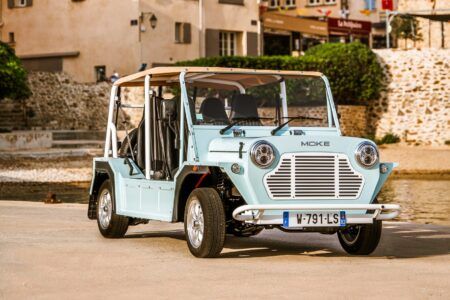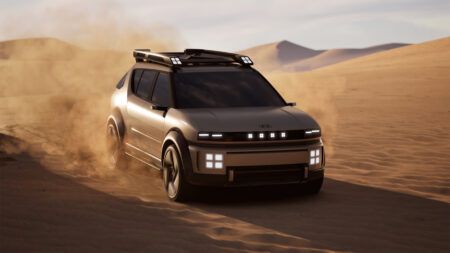Iconic motorcycle brand Triumph has announced that it is joining forces with UK industry experts including Williams Advanced Engineering to develop and manufacture a future of electric motorcycles.
The company revealed that it is working on a two-year plan called Project Triumph TE-1 where it will combine the expertise of academics and four industry companies to develop technical innovation and advanced electric motorcycle capabilities.
The partners involved are: Triumph Motorcycles, Williams Advanced Engineering, Integral Powertrain’s e-Drive Division, and WMG, at the University of Warwick.
With Triumph leading the project and supplying the motorcycle chassis and engineering expertise, each will bring specialist skills to the project. Williams Advanced Engineering will provide a lightweight battery design and integration capabilities as well as its testing facilities, while WMG will provide knowledge of electrification and research innovation.
“This new collaboration represents an exciting opportunity for Triumph and its partners to be leaders in the technology that will enable the electrification of motorcycles, which is driven by customers striving to reduce their environmental impact, combined with the desire for more economical transportation, and changing legislation,” said Nick Bloor, Triumph CEO. “Project Triumph TE-1 is one part of our electric motorcycle strategy, focused on delivering what riders want and expect from their Triumph, which is the perfect balance of handling, performance and usability.”
The project will be organised into four main phases, with one of its key aims being increased systems integration. By developing individual components of automotive-based electric drivetrains and optimising them into innovative combined units, the project aims to deliver sophisticated electric motorcycle systems which reduce mass, complexity and package requirements.
Triumph Motorcycles will work alongside the partner organisations to accelerate joint expertise in the packaging and safety of batteries, optimum electric motor sizing and packaging, the integration of braking systems including regenerative braking, and advanced safety systems. The innovation and capabilities developed in these areas will input into Triumph’s future electric motorcycle strategy.
As with passenger cars, customers are seeking a lower environmental impact of transportation and to reduce emissions. Motorcycles, despite being not as big offenders as cars and trucks, are still subject to stricter emissions regulations and an electric future is something Triumph is clearly preparing for.
“Electric motorcycles will have a vital role to play in future transport across the globe – delivering reduced congestion and improved urban air quality as well as easing parking. They will also be great to ride, with copious, easily controlled torque delivered smoothly at all road speeds. WMG has experience of battery technology and vehicle electrification for road, rail, sea and air which it will bring to this exciting sector. Our expert team will lead the modelling and simulation work within the project, to ensure the vehicles are safe and efficient without compromise to dynamic performance.” Professor David Greenwood, Professor, Advanced Propulsion Systems at WMG, University of Warwick.





